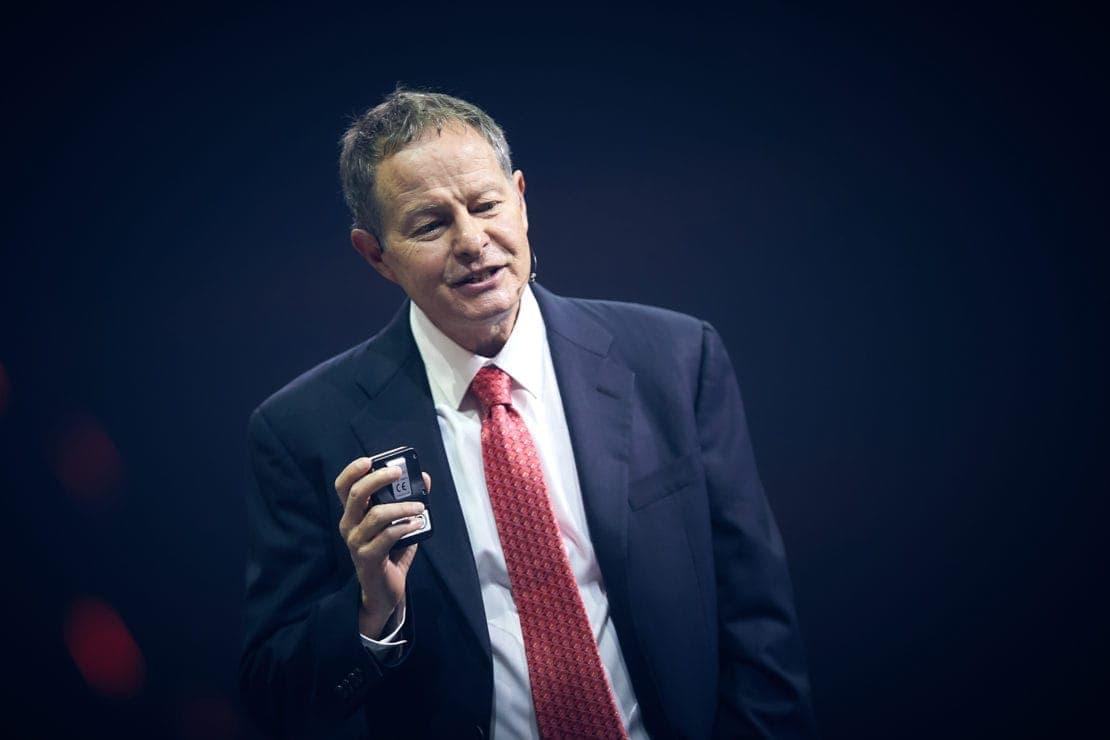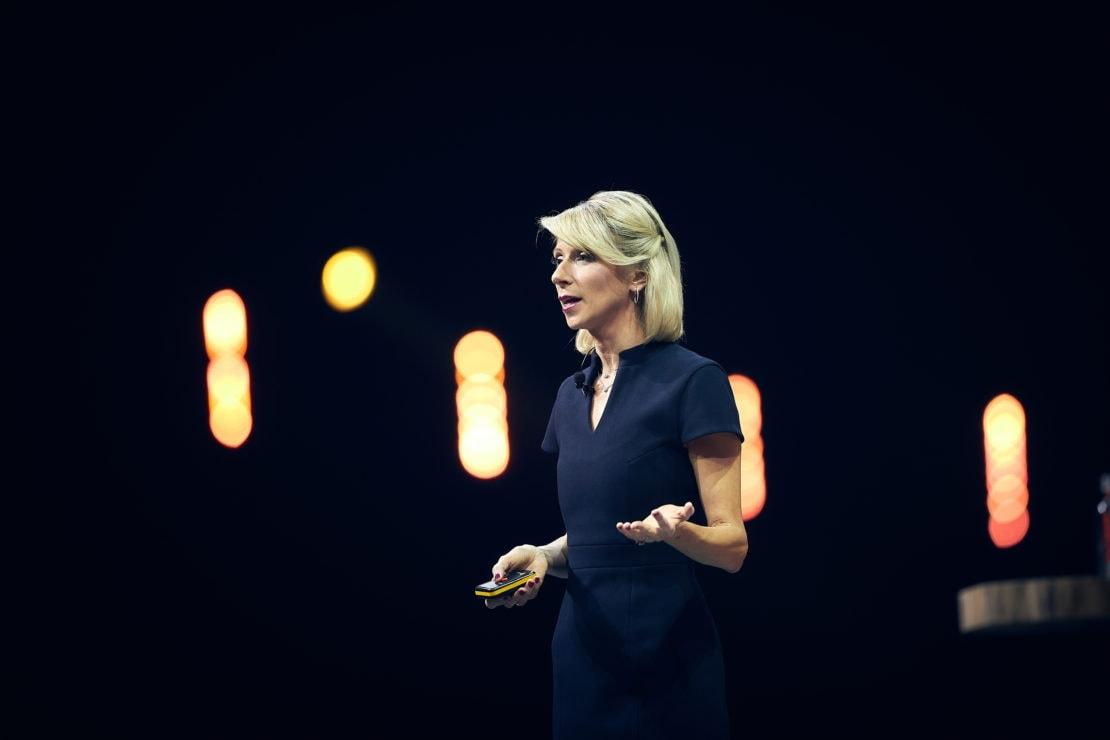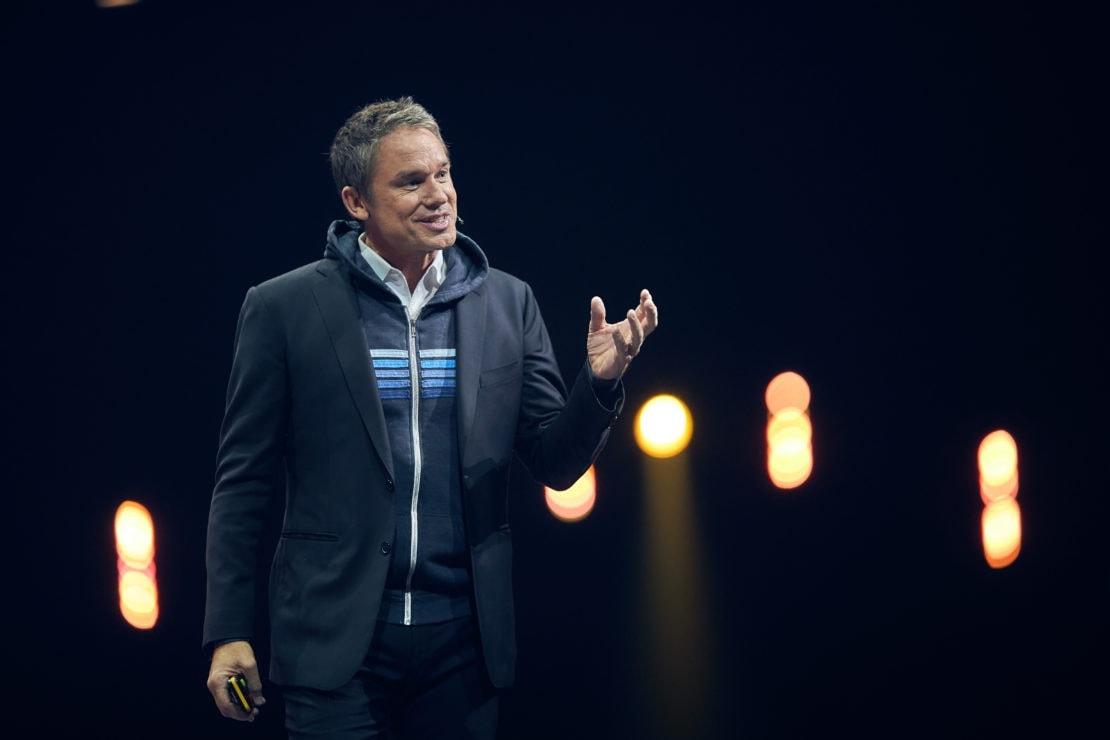19Nov2018
“Is it possible to build a business based on love?” John Mackey asked halfway through his keynote presentation at the 2018 Nordic Business Forum. Mackey, whose Whole Foods Market has grown into a multi-billion dollar business, while championing issues such as animal welfare and sustainable farming long before they were fashionable, had already outlined how business has been a force for good throughout history.
Acting as the world’s primary creator of value, businesses have dragged billions of people out of poverty and have provided unprecedented opportunities. And yet, Mackey noted that a love-based enterprise would not be an easy proposition to implement in today’s cultural climate. He instead underlined the work that still needed to be done to develop conscious capitalism, highlighting the corporate world’s tendency to favor the language of war and sports.
“As great as capitalism is, it’s going to become much better,” Mackey argued, “because the people running successful businesses are becoming more conscious.” Although most people simply assume business is about making money, he points out that this is rarely the case with truly successful ventures. “Great businesses have great purpose,” Mackey said and continued, “companies like Amazon and Google set out their aims in concise statements of intent, and these aims are not monetary.”
Business with purpose
As an example, Google’s mission is “to organize the world’s information and make it universally accessible and useful,” whereas Whole Foods Market has always aimed “to nourish people and the planet,” Both companies also happen to be highly successful by any conventional business metrics.
Mackey believes the success of both companies comes down to the interconnectedness of their various stakeholder groups. In retail, a happy staff produces happy customers, who in turn delight investors, and so on. The key differentiator between great and merely good retail operators is the ability to be creative enough to think of strategies where all stakeholder groups simultaneously win.
At this point, Mackey stressed the importance of not commissioning slick mission statements for their own organizations just yet. “The conscious leader,” he said, “must embody the purpose of the organization and spread it to all staff. And that purpose should be radical.
“We are not in our businesses to preserve the status quo,” he continued. ”We need to think about how we can make the world a better place.”
This is the embodiment of value creation, and it can be seen in the tech companies that have built our modern, liberating connectivity from scratch in the last 20 years. Yes, they make money – but only because everyone derives a benefit from their revolution.
Whole Foods Market has also been a key driver of change – in the way millions of people eat, and how that food is produced. Even so, Mackey chose to focus on his company’s 93,000 staff members (at the latest count). Rather than trying to stamp his authority as a leader and drive the company’s higher purpose from the top down, Mackey sees himself as an enabler. He actively hires and promotes people who care – about each other and the company aims – in a bid to infuse the company purpose and the conscious capitalism ethic throughout the organization’s fabric.
Care to innovate
Hard as it may be to build a company on love – and Mackey does believe it possible – he has certainly put care at the heart of his model. There are seven core emotional values enshrined in the Whole Foods Market rulebook, but in Helsinki, the author focused on two: Care and integrity.
The latter is largely self-evident, albeit of great importance. But by building a caring corporate culture where everyone respects and appreciates their co-workers, Mackey believes real long-term value can be built.
“Everything you do can be copied,” he says. ”Patents expire, innovations occur. It’s about your team, your workforce – how much creativity can you unleash in that workforce to help your organization evolve and get better? A conscious leader can do that – they can inspire people to give their very best for the company.”
The message is that ruthless, money-oriented business models are not as safe as they seem. Only a conscious culture can enable the human resource to operate without fear of failure and ensure that innovation thrives.
About Nordic Business Forum 2018
Nordic Business Forum 2018 was held on 26-27 September in Helsinki, Finland, gathering together 7,500 CEOs, top executives, and entrepreneurs from over 40 countries.
Download the full Executive Summary and read what the speakers said on stage at Nordic Business Forum 2018.


